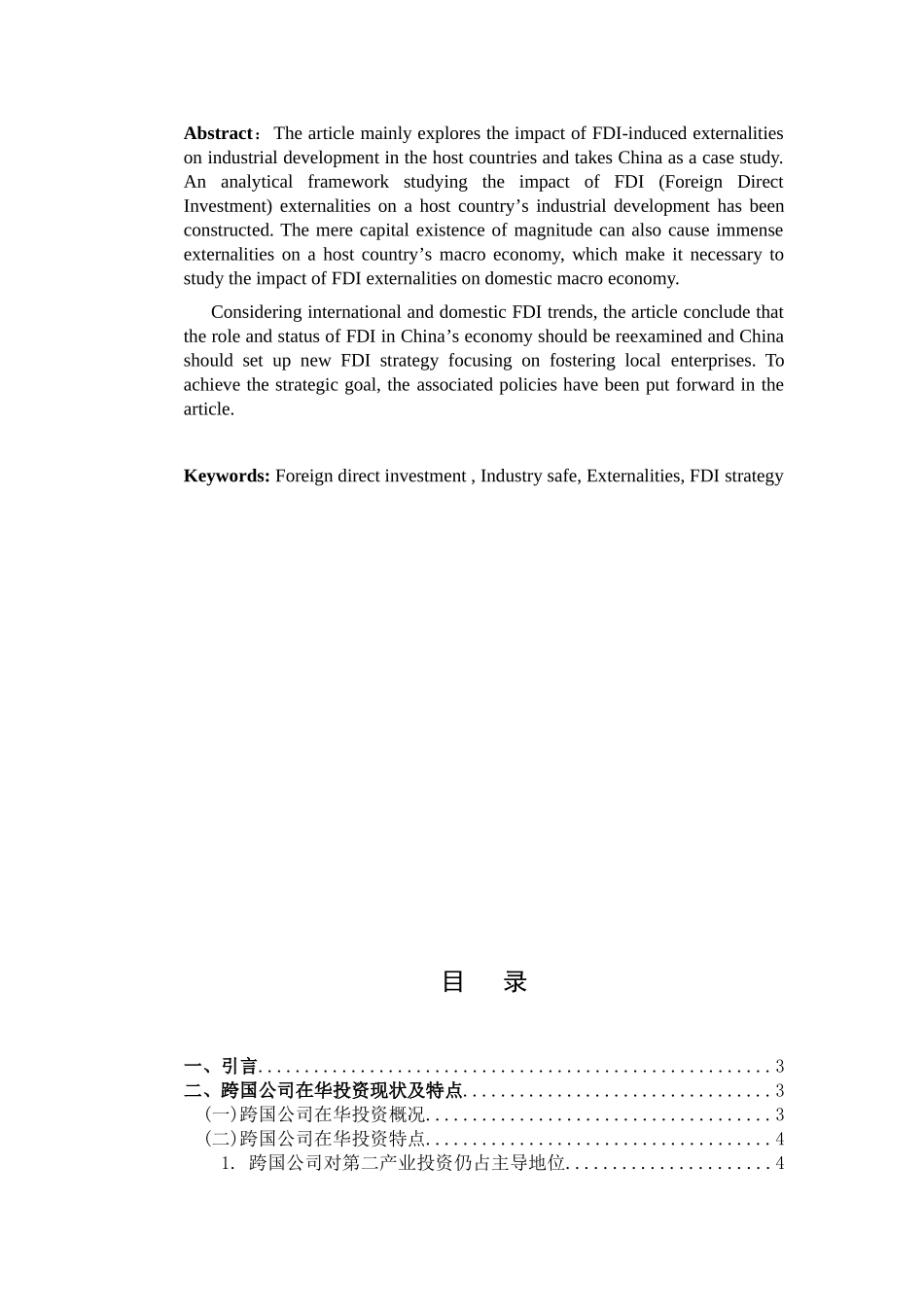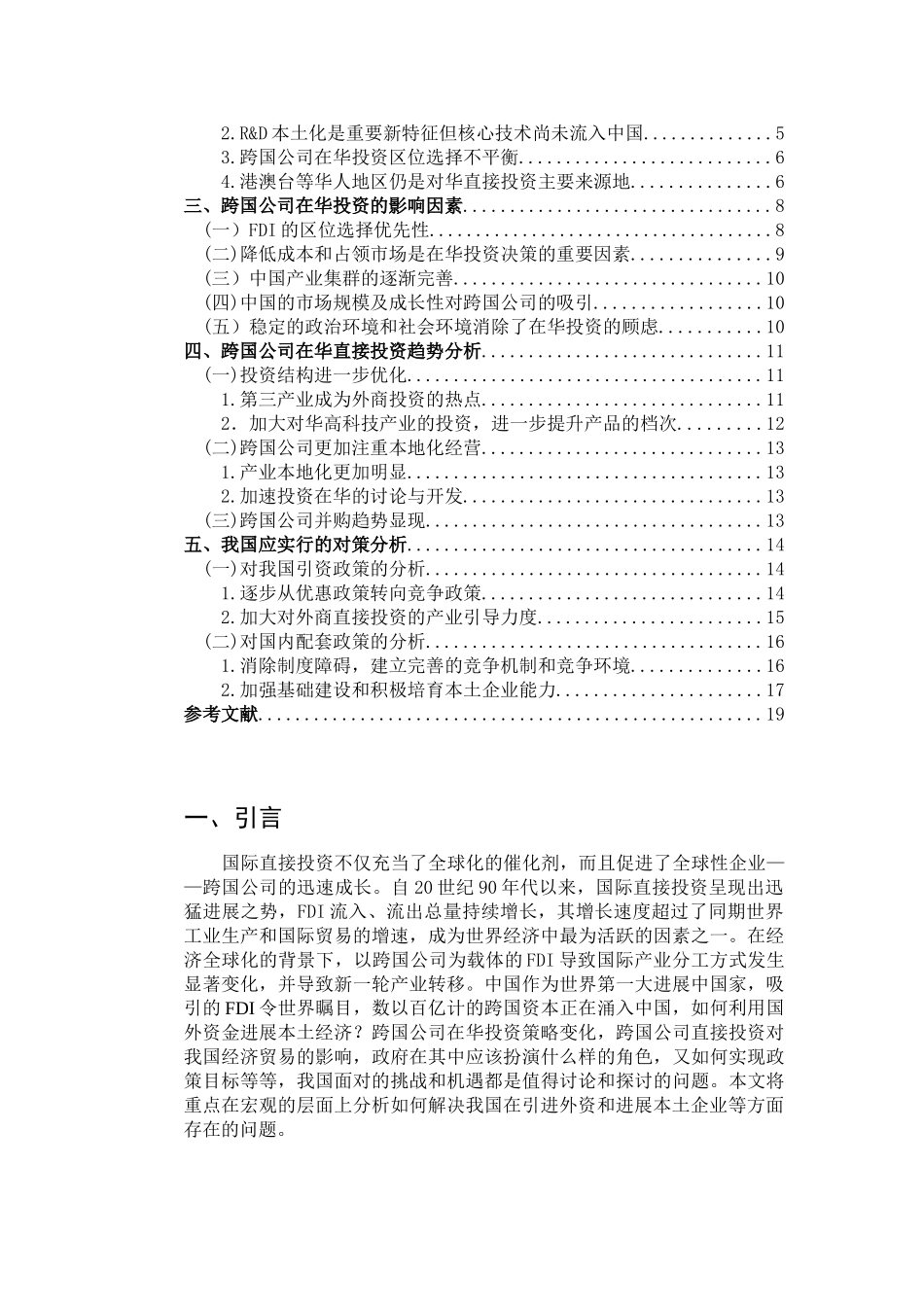跨国公司在华投资现状、影响因素及趋势分析摘 要本文以中国为主要讨论对象,构建了一个讨论 FDI 外部性对东道国产业进展影响的理论分析框架。FDI 以其强大的资本存在给进展中国家带来巨大的外部效应,这种资本存在由于其规模巨大,对东道国的整个宏观经济产生了外在的影响,因此,讨论 FDI 外部性对东道国宏观经济的影响也就有其必要性。FDI 外部性对我国宏观经济的影响,一方面带来了国民收入的增加,但同时又加剧了国民收入的差距;另一方面,FDI 带来了总就业量的增加,但同时也带来的就业的挤出。FDI 对其他方面,如环境、对外经济关系的负面影响,更是日益严重。因此,目前我国已为利用 FDI 付出了较高的代价,并且 FDI 已对我国产业安全构成了一定的威胁。考虑到我国目前利用外资所面临的国际和国内新形势,本文认为有必要重新审视跨国公司及其 FDI 在中国经济中的地位和作用,应当把促进中国本土企业、产业的成长和进展,实现中国的自立进展作为引进外资的战略目标。为此,从对外的引资政策和国内的配套政策做出了相应的分析。关键词:国外直接投资,产业安全,外部效应,引资政策 The Status Atation, Impact of Factors and Trend Analysis about Foreign Direct Investment in ChinaAbstract:The article mainly explores the impact of FDI-induced externalities on industrial development in the host countries and takes China as a case study. An analytical framework studying the impact of FDI (Foreign Direct Investment) externalities on a host country’s industrial development has been constructed. The mere capital existence of magnitude can also cause immense externalities on a host country’s macro economy, which make it necessary to study the impact of FDI externalities on domestic macro economy.Considering international and domestic FDI trends, the article conclude that the role and status of FDI in China’s economy should be reexamined and China should set up new FDI strategy focusing on fostering local enterprises. To achieve the strategic goal, the associated policies have been put forward in the...


